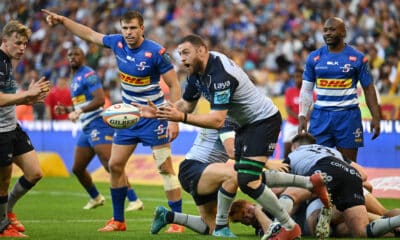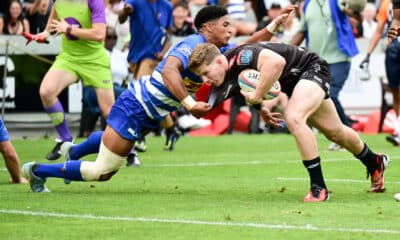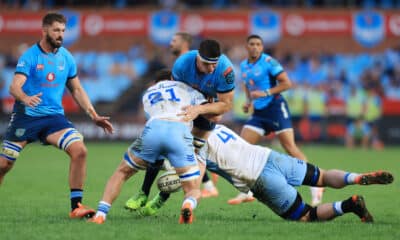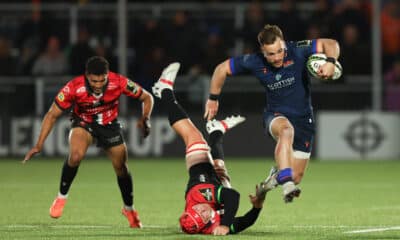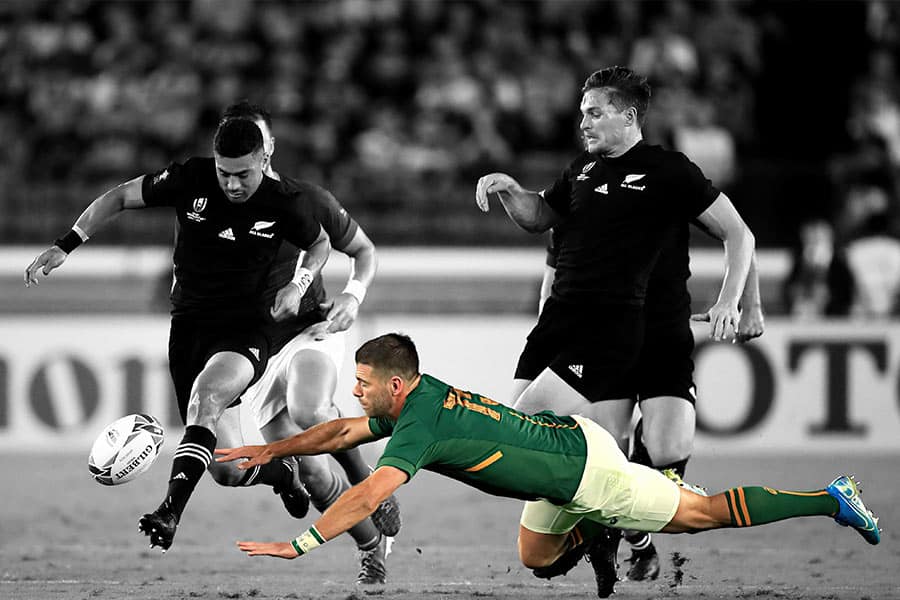
23 September 2019, by: Quintin Van Jaarsveld
RWC – All Blacks defeat a dose of bad medicine for Boks
Disappointing from a South African perspective, yes, but the Springboks’ 23-13 defeat to the All Blacks in their Rugby World Cup opener in Yokohama on Saturday isn’t the end of the world, writes Quintin van Jaarsveld.
GET THE ADVANTAGE WITH OUR RUGBY BETTING OFFERS
Extensive pre-match and live in-play markets on every game.
Our legendary BET Boosts to give you extra value on every game!
Exclusive to BET.co.za customers.
In the build-up to the biggest pool game in World Cup history, Siya Kolisi made a significant statement that went largely unnoticed…drowned out by the headline-stealing mind games played by both camps, particularly concerning French referee, Jérôme Garcès.
Touching on the recent history between rugby’s greatest rivals and the importance of the campaign-opening clash, the Springbok skipper remarked.
“It has been close and we can’t say who will have an edge over whom as it’s been one point, two points, and then we played to a draw in the last one. That’s why this game is really important, to see where we are at as a group.”
Kolisi and company, indeed, now know exactly where they stand as it relates to their arch-rivals and tournament favourites in Japanese conditions.
The Pool B blockbuster wasn’t the tightly-contested clash it seemed destined to be as the All Blacks fed off the Springboks’ mistakes and consequently controlled the game for the most part. As a result, New Zealand are now poised to take the high road as pool winners, with the Springboks most likely set for a tough quarterfinal against Ireland as pool runners-up.
In front of a capacity crowd of over 70,000 fans, the two-time defending champions displayed their unrivalled killer instinct to cash in on Springbok errors.
Duane Vermeulen fumbled a high ball which led to the first try, and minutes later, Handré Pollard did the same, which ultimately resulted in a scrambling South Africa conceding a second seven-pointer. With that, the All Blacks led 17-3 and although the Springboks made a spirited comeback to reduce the deficit to four, New Zealand’s game management saw them sew up the result with a comfortable 10-point margin in the end.
Those blunders, along with Pollard’s shock missed penalty kick from 30m out that predated them (18th minute), were the three key moments of the match.
The origins of the two rapid-fire tries highlighted the fact that it was New Zealand’s tactical superiority that steered them to victory. Consider this: the All Blacks kicked more than the Springboks. You read that right.
Steve Hansen’s men kicked 35 times to Rassie Erasmus’ charges’ 26. This all-important stat stood at 16-14 at half-time, which considering the Springboks’ territorial dominance in the first quarter, which subsided somewhat yet stood at 61% at half-time and 59% at full time, spoke volumes of the All Blacks’ composure, tactical awareness and superior execution.
There were moments early on, with the Springboks firing on all cylinders with Rottweiler-like intensity and determination, where the All Blacks appeared rattled, with the ball not always going to hand under the fierce onslaught from the old foe.
For the most part, though, they were fearless despite being pinned in their half. Instead of the standard kick-first approach, they varied their play expertly and exploited space when opportunities arose. Their discipline and Ardie Savea-led dominance at the breakdown were key to their success in this regard, ensuring they didn’t turn over ball or concede kickable penalties.
As mentioned, when they did kick, they did it better than the Springboks. That’ll be Erasmus’ main concern. The two-time world champions live and die by their tactical kicking game – it’s what guided them to the famous win in Wellington last year and the draw in the New Zealand capital this year.
On Saturday, all three of their cannons misfired. De Klerk’s box kicking was erratic, while Pollard and Willie le Roux either overcooked or skied their kicks. Collectively, the trio’s poor execution gave the All Blacks more rope to hang them with.
The turnaround in the third quarter, when the Springboks scored 10 unanswered points, was a direct result of improved tactical kicking and contesting in the air. Up to that point, South Africa – with the exception of the outstanding Cheslin Kolbe – had been outgunned in the air and had been dreadful under the high ball.
Le Roux was the main culprit, botching three attempted takes in the first half alone, which put his team under tremendous pressure. Aaron Smith was simply outstanding with his often underrated boot from the base and gave the Springboks a taste of their own medicine.
The Springboks also let themselves down on defence – the other hallmark of their game. They slipped a whopping 23 tackles in the first half alone and 12 more in the second. They made 108 tackles in all for a shoddy success rate of 76%.
The All Blacks had it much easier, with the Springboks’ more predictable offence – again, aside from the scintillating Kolbe – and while not all that impressive (they made 126 and missed 28 tackles), they had the upper hand here as well with an 82% success rate.
Ill-discipline also cost the Springboks. Erasmus, in fact, said it was THE determining factor of the fixture. Garcès, under whom the Springboks are now 0-6 against the All Blacks and 4-10 overall, pinged South Africa on nine occasions and New Zealand on four.
What’s more, Erasmus’ men failed to use their set-pieces as weapons. After an even first half, the All Blacks gained the ascendency at scrum time in the second half, winning penalties in the 44th and 64th minutes respectively. The Springboks had the edge in the lineouts, where they won two on the All Blacks’ throw, but again, they were unable to translate those small wins into points on the scoreboard.
It wasn’t the performance, and indeed the result, that the Springboks wanted, but the loss should be seen by South African supporters as a dose of bad medicine – tough to swallow but rich in lasting benefits that could, coupled with the proper ‘rehabilitation’, see the Springboks turn the tables should the giants meet again in the final on November 2.
JOIN BET.CO.ZA NOW AND GET 100% DEPOSIT MATCH UP TO R1000
Open your BET.co.za account here
Deposit using your preferred method
Your bonus gets added immediately!
MORE RUGBY


















